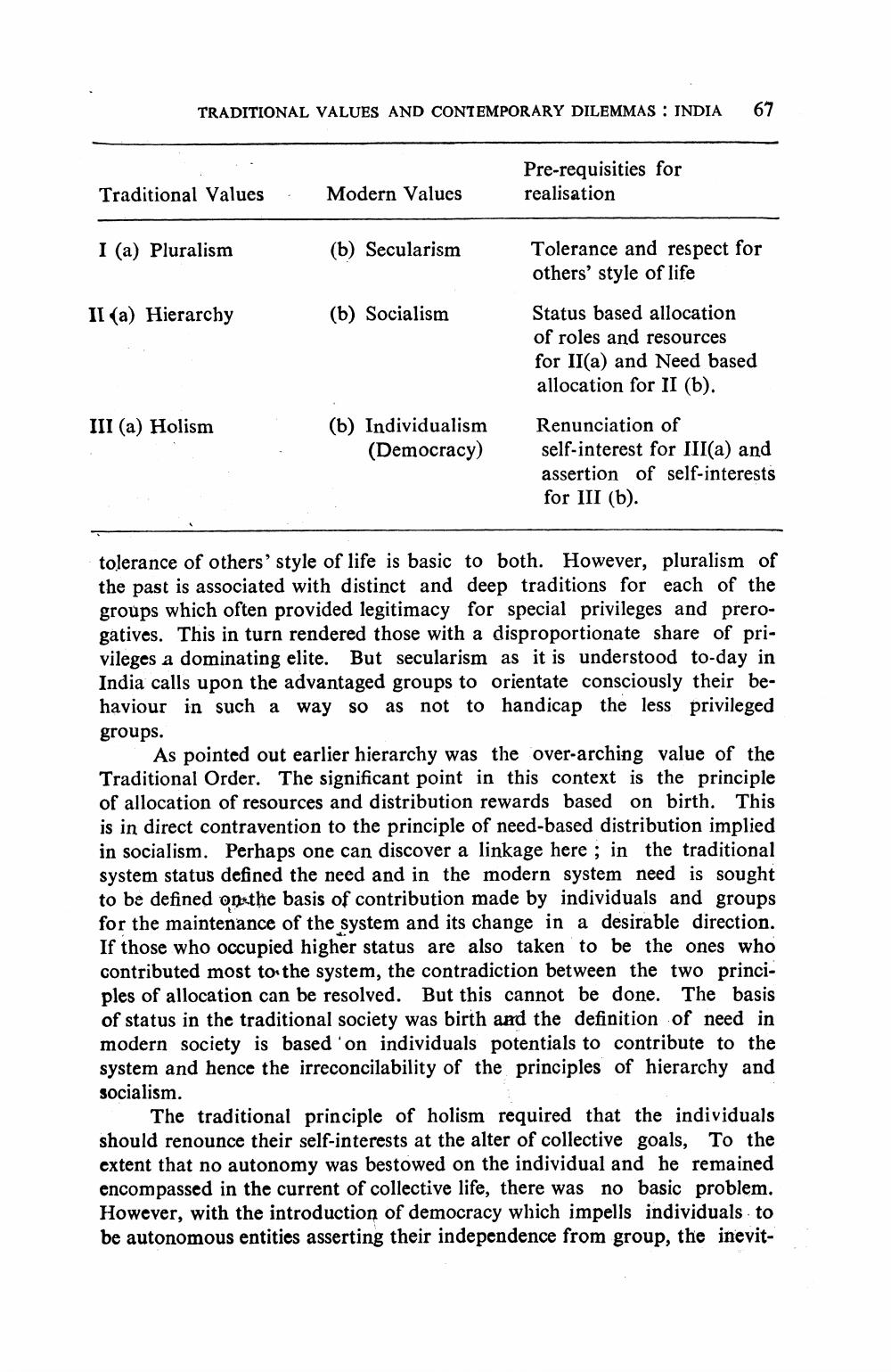Book Title: Traditional Values And Contemporary Dilemmas India Author(s): T K Oommen Publisher: T K Oommen View full book textPage 7
________________ TRADITIONAL VALUES AND CONTEMPORARY DILEMMAS INDIA 67 Traditional Values I (a) Pluralism II (a) Hierarchy III (a) Holism Modern Values (b) Secularism (b) Socialism (b) Individualism (Democracy) Pre-requisities for realisation Tolerance and respect for others' style of life Status based allocation of roles and resources for II(a) and Need based allocation for II (b). Renunciation of self-interest for III(a) and assertion of self-interests for III (b). tolerance of others' style of life is basic to both. However, pluralism of the past is associated with distinct and deep traditions for each of the groups which often provided legitimacy for special privileges and prerogatives. This in turn rendered those with a disproportionate share of privileges a dominating elite. But secularism as it is understood to-day in India calls upon the advantaged groups to orientate consciously their behaviour in such a way so as not to handicap the less privileged groups. As pointed out earlier hierarchy was the over-arching value of the Traditional Order. The significant point in this context is the principle of allocation of resources and distribution rewards based on birth. This is in direct contravention to the principle of need-based distribution implied in socialism. Perhaps one can discover a linkage here; in the traditional system status defined the need and in the modern system need is sought to be defined on the basis of contribution made by individuals and groups for the maintenance of the system and its change in a desirable direction. If those who occupied higher status are also taken to be the ones who contributed most to the system, the contradiction between the two principles of allocation can be resolved. But this cannot be done. The basis of status in the traditional society was birth and the definition of need in modern society is based on individuals potentials to contribute to the system and hence the irreconcilability of the principles of hierarchy and socialism. The traditional principle of holism required that the individuals should renounce their self-interests at the alter of collective goals, To the extent that no autonomy was bestowed on the individual and he remained encompassed in the current of collective life, there was no basic problem. However, with the introduction of democracy which impells individuals to be autonomous entities asserting their independence from group, the inevitPage Navigation
1 ... 5 6 7 8 9 10
